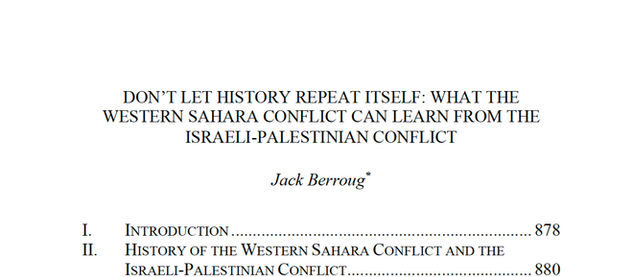

Don't Let History Repeat Itself: What the Western Sahara Conflict Can Learn From the Israeli-Palestinian Conflict
This Note compares the Morrocan-Polisario Front conflict over Western Sahara to the Israeli-Palestinian conflict in hopes of taking the...
Jack Berroug
Jul 14, 2025









